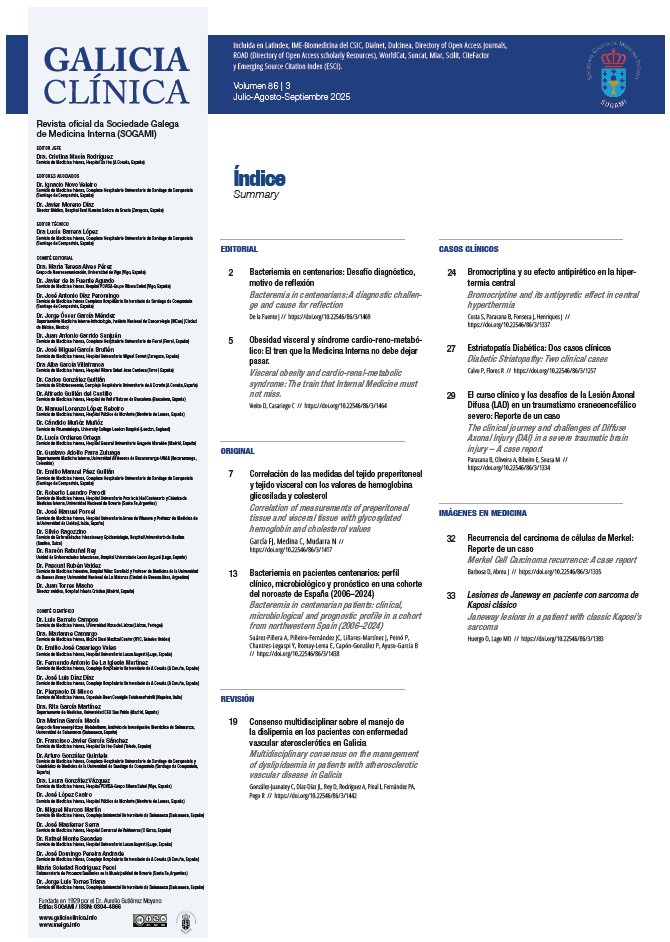Resumen
La hipertermia central se caracteriza por un inicio rápido de temperaturas elevadas, resistentes a antibióticos y antipiréticos. El diagnóstico requiere excluir causas infecciosas y confirmar una condición neurológica subyacente. Dado que se asocia a un peor pronóstico, el control temprano es fundamental. Las opciones terapéuticas para el control de la temperatura son limitadas, con pocas respaldadas por evidencia clínica sólida. La bromocriptina, que modula la transmisión dopaminérgica, se ha utilizado en algunos casos, aunque su uso sigue siendo fuera de indicación y basado en informes de casos aislados.
Se presenta el caso de un hombre de 72 años con traumatismo craneoencefálico, incluyendo un hematoma subdural agudo y hemorragia subaracnoidea. En las primeras 24 horas, desarrolló hipertermia refractaria a antipiréticos. Tras descartar una infección, se diagnosticó hipertermia central. Se inició bromocriptina, que fue titulada, logrando un control sostenido de la temperatura tras 72 horas. La interrupción del tratamiento provocó recurrencia de la hipertermia, que se resolvió con la reintroducción del fármaco. Este caso subraya la complejidad del manejo de la hipertermia central y sugiere un posible beneficio de la bromocriptina pese a la escasa evidencia.

Esta obra está bajo una licencia internacional Creative Commons Atribución-NoComercial-SinDerivadas 4.0.
Derechos de autor 2025 Galicia Clínica

